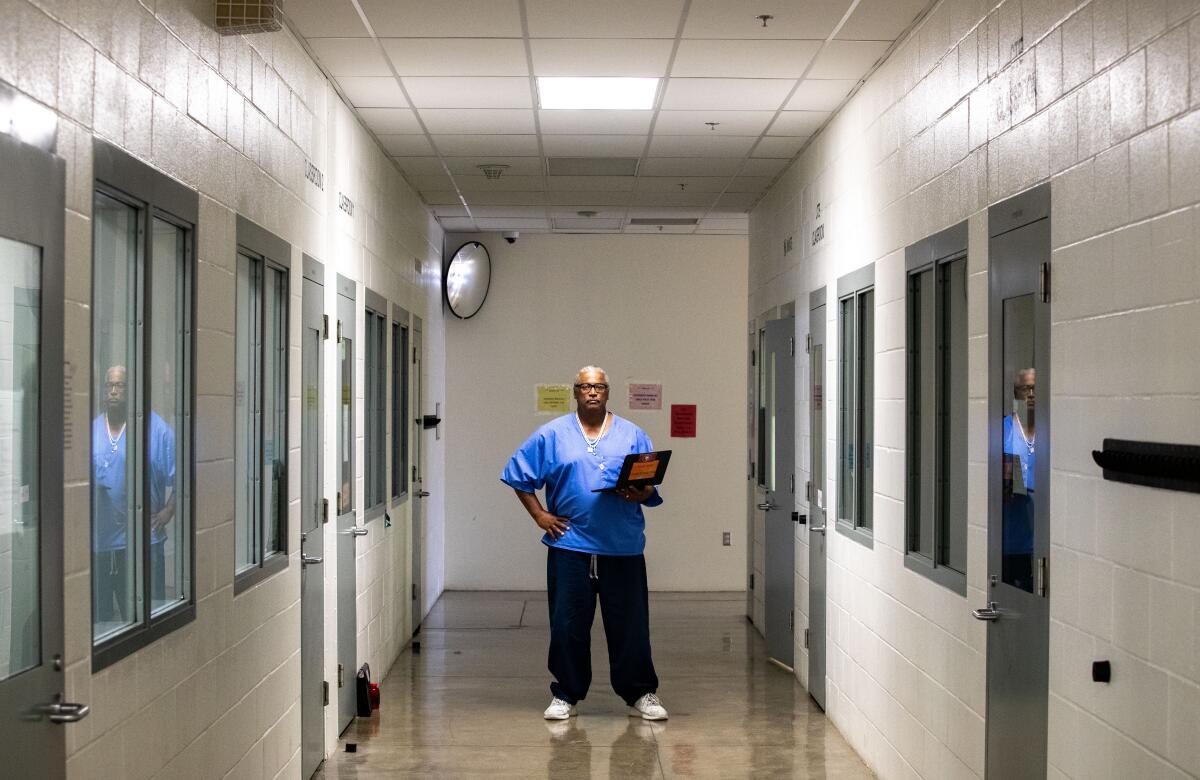Letters to the Editor: Teaching poetry to incarcerated youth is good for them and society

- Share via
To the editor: I applaud the state prison system for adding more options for prisoners to get an education, particularly in the often-undervalued humanities. As Project Rebound’s Romarilyn Ralston said, we know that “education is one of the best ways to lower recidivism rates.”
Our organization has worked in youth detention facilities since 2004. We teach poetry to inspire justice-impacted youth to discover their inner voice, share their experiences and express themselves through art, using a project-based curriculum called “F.L.O.W.” (Fluent Love of Words), based on the California language arts standards.
We teach poetry structure, then guide students to tell their own stories. Poetry promotes literacy, enhances writing skills and reading comprehension, and boosts critical thinking.
Fewer than 7% of our youth recidivate. Additionally, 81% of participants increased their grade point average, and most improved their leadership skills and ability to manage emotions.
Our greatest hope is that by catching them early, justice-impacted youth can pursue higher education outside the prison system.
Harry Grammer, Culver City
The writer is founder and president of the nonprofit youth mentoring organization New Earth.
..
To the editor: What’s wrong with this picture?
Luke Scott, in prison for murder without possibility of parole, gets to study for a master’s degree, basically for free through financial aid.
Meanwhile, as your reporting from another article makes clear, foster kids through no fault of their own struggle to survive with limited options to attend college.
Don’t get me wrong — I strongly support education. But I believe educational support programs for youth growing up in foster care are more critical and important than programs for criminals.
Bette Tang, Chatsworth
..
To the editor: The front-page story of prison inmates earning master’s degrees in humanities is inspiring, for sure.
Recent news of universities cutting back on humanities programs makes me wonder if the prisons have something to teach so-called higher education.
Silvio Nardoni, Pasadena




